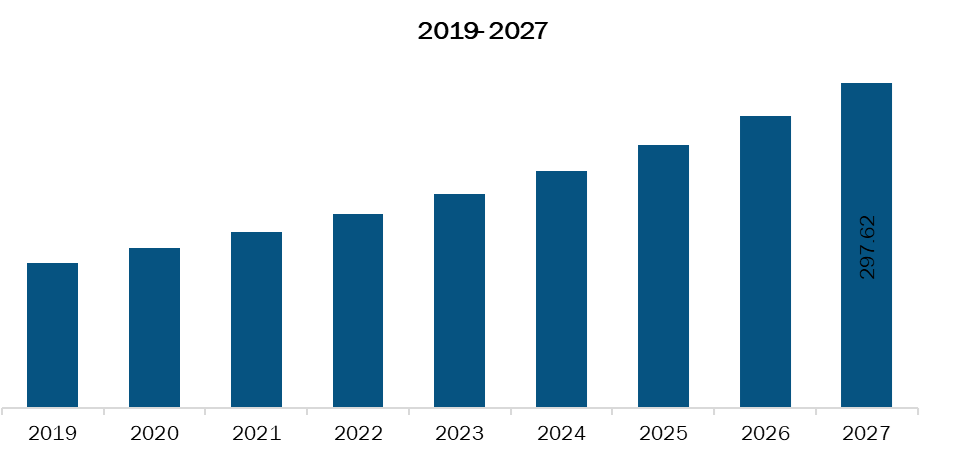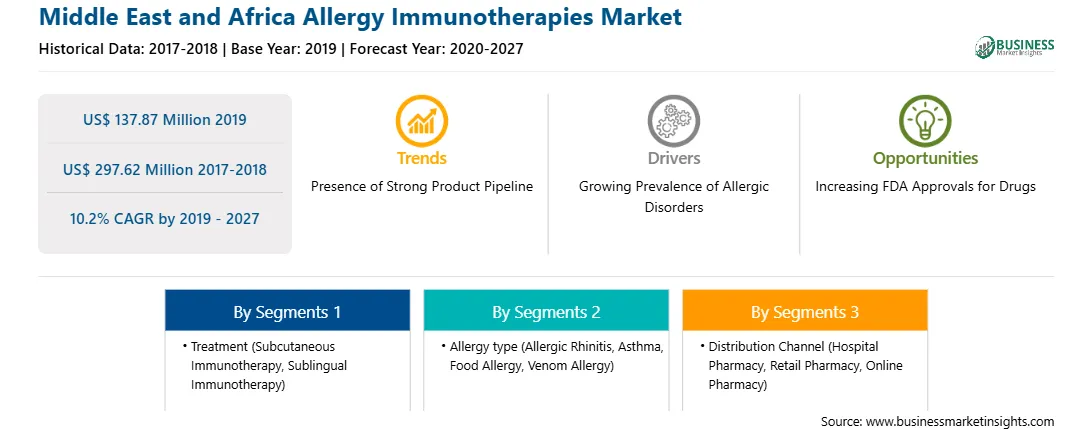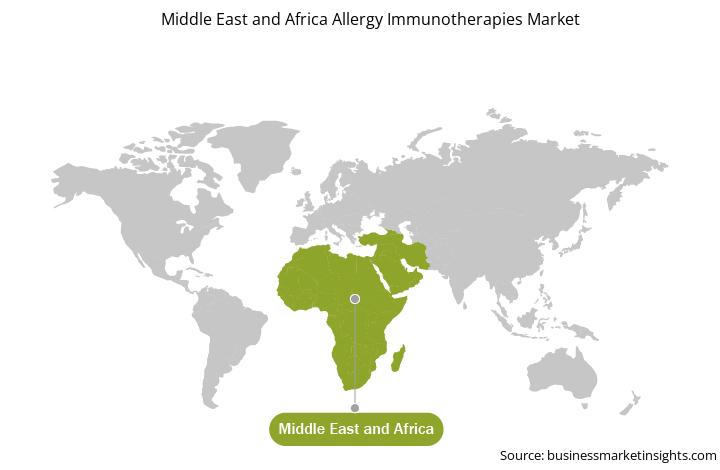Allergen immunotherapy, also known as hypo-sensitization or desensitization, is a medical treatment for allergies. Measured doses of allergens are given to the patient resulting in reduced inflammation, which causes immune system to become less sensitive to the substance by blocking antibody function. Allergy immunotherapy primary therapeutic goals include reducing symptoms, reducing symptomatic medication use, and improving allergy-related quality of life.

Strategic insights for the Middle East and Africa Allergy Immunotherapies provides data-driven analysis of the industry landscape, including current trends, key players, and regional nuances. These insights offer actionable recommendations, enabling readers to differentiate themselves from competitors by identifying untapped segments or developing unique value propositions. Leveraging data analytics, these insights help industry players anticipate the market shifts, whether investors, manufacturers, or other stakeholders. A future-oriented perspective is essential, helping stakeholders anticipate market shifts and position themselves for long-term success in this dynamic region. Ultimately, effective strategic insights empower readers to make informed decisions that drive profitability and achieve their business objectives within the market.

| Report Attribute | Details |
|---|---|
| Market size in 2019 | US$ 137.87 Million |
| Market Size by 2027 | US$ 297.62 Million |
| Global CAGR (2019 - 2027) | 10.2% |
| Historical Data | 2017-2018 |
| Forecast period | 2020-2027 |
| Segments Covered |
By Treatment
|
| Regions and Countries Covered | Middle East and Africa
|
| Market leaders and key company profiles |
The geographic scope of the Middle East and Africa Allergy Immunotherapies refers to the specific areas in which a business operates and competes. Understanding local distinctions, such as diverse consumer preferences (e.g., demand for specific plug types or battery backup durations), varying economic conditions, and regulatory environments, is crucial for tailoring strategies to specific markets. Businesses can expand their reach by identifying underserved areas or adapting their offerings to meet local demands. A clear market focus allows for more effective resource allocation, targeted marketing campaigns, and better positioning against local competitors, ultimately driving growth in those targeted areas.

The Middle East & Africa Allergy immunotherapies market was valued at US$ 137.87 million in 2019 and is projected to reach US$ 297.62 million by 2027; it is expected to grow at a CAGR of 10.2% during the forecast period. The Middle East & Africa allergy immunotherapies market is expected to grow owing to key driving factors such as the increasing prevalence of allergic disorders and technological advancements in sublingual dosage formulations. However, drawbacks associated with the use of allergy immunotherapies, restricted healthcare spending and regulatory variations across regions is likely to hamper the growth of the market during the forecast period.
The Middle East and Africa Allergy immunotherapies market, based on treatment is segmented into Subcutaneous Immunotherapy (SCIT) and Sublingual Immunotherapy (SLIT). In 2019, the Subcutaneous Immunotherapy (SCIT) segment held the largest share of the market, however, the Sublingual Immunotherapy (SLIT) segment is expected to grow at the fastest rate during the forecast period. Based on Allergy Type, the Middle East and Africa allergy immunotherapies market was segmented into Allergic Rhinitis, Asthma, Food Allergy, Venom Allergy, and Others. The Allergic Rhinitis segment held the highest share of the Allergy immunotherapies market in 2019. Moreover, the same segment is anticipated to witness growth at a significant rate during the forecast period.
Based on distribution channel, market is segmented into, hospital pharmacy, retail pharmacy and online pharmacy. In 2019, the hospital pharmacy settings segment held the largest share of the market and the same pharmacy segment is expected to grow at the fastest rate during the forecast period.
Some of the major primary and secondary sources for Middle East & Africa allergy immunotherapies market included in the report are Celsion Corporation; World Allergy Organization (WAO); World Health Organization (WHO); Saudi Society of Allergy, Asthma and Immunology and Allergy Society of South Africa (ALLSA).
By Treatment
By Allergy Type
By Distribution Channel
By Country
Company Profiles
The Middle East and Africa Allergy Immunotherapies Market is valued at US$ 137.87 Million in 2019, it is projected to reach US$ 297.62 Million by 2027.
As per our report Middle East and Africa Allergy Immunotherapies Market, the market size is valued at US$ 137.87 Million in 2019, projecting it to reach US$ 297.62 Million by 2027. This translates to a CAGR of approximately 10.2% during the forecast period.
The Middle East and Africa Allergy Immunotherapies Market report typically cover these key segments-
The historic period, base year, and forecast period can vary slightly depending on the specific market research report. However, for the Middle East and Africa Allergy Immunotherapies Market report:
The Middle East and Africa Allergy Immunotherapies Market is populated by several key players, each contributing to its growth and innovation. Some of the major players include:
The Middle East and Africa Allergy Immunotherapies Market report is valuable for diverse stakeholders, including:
Essentially, anyone involved in or considering involvement in the Middle East and Africa Allergy Immunotherapies Market value chain can benefit from the information contained in a comprehensive market report.